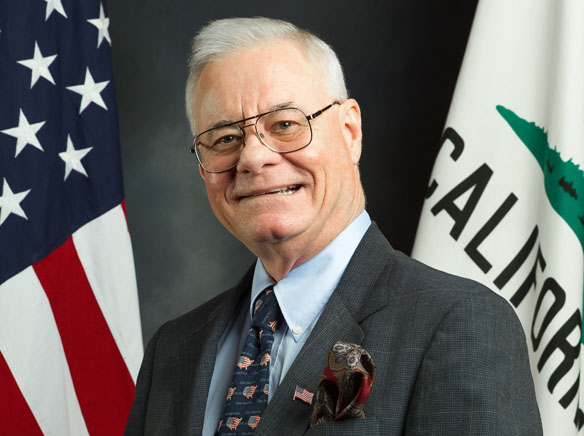It didn’t take me long to discover there’s mischief afoot in Sacramento – and it couldn’t be any more prevalent than what’s going on with transportation funding. It turns out there are a number of fees and taxes collected to pay for transportation, only to end up diverted to the general fund. It’s a pattern that is prevalent throughout our budget process, but is particularly pernicious when it comes to transportation.
It didn’t take me long to discover there’s mischief afoot in Sacramento – and it couldn’t be any more prevalent than what’s going on with transportation funding. It turns out there are a number of fees and taxes collected to pay for transportation, only to end up diverted to the general fund. It’s a pattern that is prevalent throughout our budget process, but is particularly pernicious when it comes to transportation.
I was shocked to learn how regularly and blatantly our state raids transportation funds, especially in light of the fact that our highways, roads, and transit systems require significant funding.
That’s why I’m proud to serve as a Co-Author of the Traffic Relief and Road Improvement Act.
This legislation is anchored around three core principles: road funding should go to funding roads, rather than into the general fund; existing fees and taxes are sufficient; and we should provide greater efficiency and transparency when it comes to the allocation of transportation dollars.
Each year, $1 billion is diverted from gas tax revenues to the General Fund; this translates to more than $400 million taken from funding for local streets and roads. It’s an unjustified raid of critical transportation funds. Our transportation legislation would end this diversion. In addition, the bill would also require repayment of all outstanding transportation loans (essentially, IOU’s from additional funds diverted from transportation funds into general fund spending) and ensures “hidden gas tax” (i.e. 11 cent gas price increase due to cap-and-trade) are appropriately funding transportation.
Often, the proposed solution for increased transportation funding is a tax increase. We saw this locally with Measure A, which called for an increase in taxes throughout the region to fund road and other improvements. Many are calling for a similar remedy in Sacramento. Governor Brown and legislative Democrats have proposed various fee and tax increases in their respective plans.
However, Californians currently pay the second highest gas prices and the second highest gas taxes in the nation. The average Californian pays more than $200 every year to register a vehicle. Next to housing, families pay more for transportation than any other household expenditure (including food and healthcare). Meanwhile, as stated above, the legislature has diverted existing transportation taxes for non-transportation purposes. I’m focused on ensuring that existing transportation tax revenues fund transportation before imposing regressive tax increases on hard-working families. Regardless of how much funding is available, we’d be doing a disservice to Californians if there weren’t safeguards in place to ensure these funds were spent appropriately and efficiently.
California has the 4th highest overhead costs in the nation when it comes to transportation projects. A 2014 report by the Legislative Analyst revealed that Caltrans is overstaffed by 3,500 full-time employees, at a cost of more than $500 million per year.
The Traffic Relief and Road Improvement Act would achieve savings from Caltrans efficiencies, increase oversight over Caltrans spending, and create a new Transportation Inspector General to audit projects and improve performance. All major transportation projects will be regularly audited. The plan increases flexibility for Caltrans to contract out, and restores a program allowing public-private partnerships. Altogether, the Traffic Relief and Road Improvement Act generates $7.8 billion in new transportation funding ($5.6 billion annual/$2.2 billion one-time revenues) for Californians.
The funding is spread throughout our transportation infrastructure, addressing a number of areas including deferred maintenance, highway improvement, local streets and roads, transit, active transportation, DMV modernization and CHP. It also facilitates federal funding for trade corridor improvements.
Transportation is a critical responsibility of government and one that Sacramento has neglected for far too long. The Traffic Relief and Road Improvement Act will ensure our roads get the funding they deserve with transparency and accountability and without additional burdens from taxes and fees.
Assemblymember
Randy Voepel














